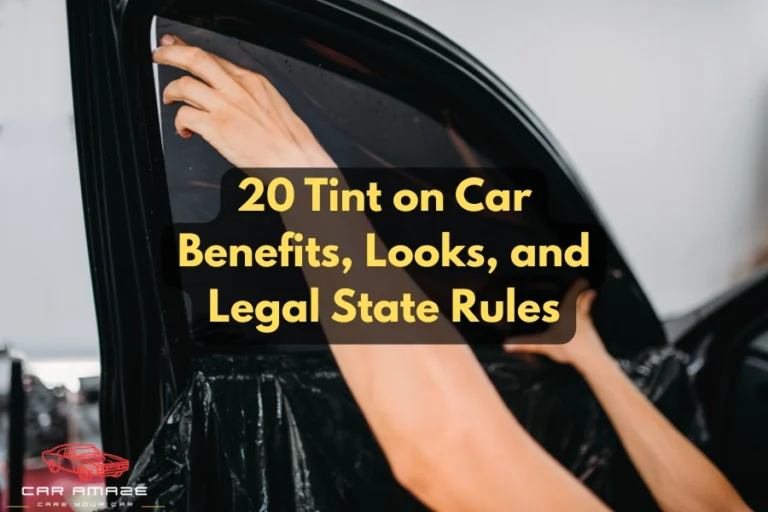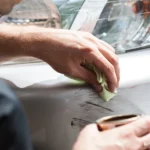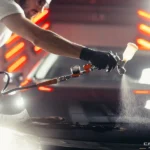Types of Car Window Tint Shades: Which One is Right for You?
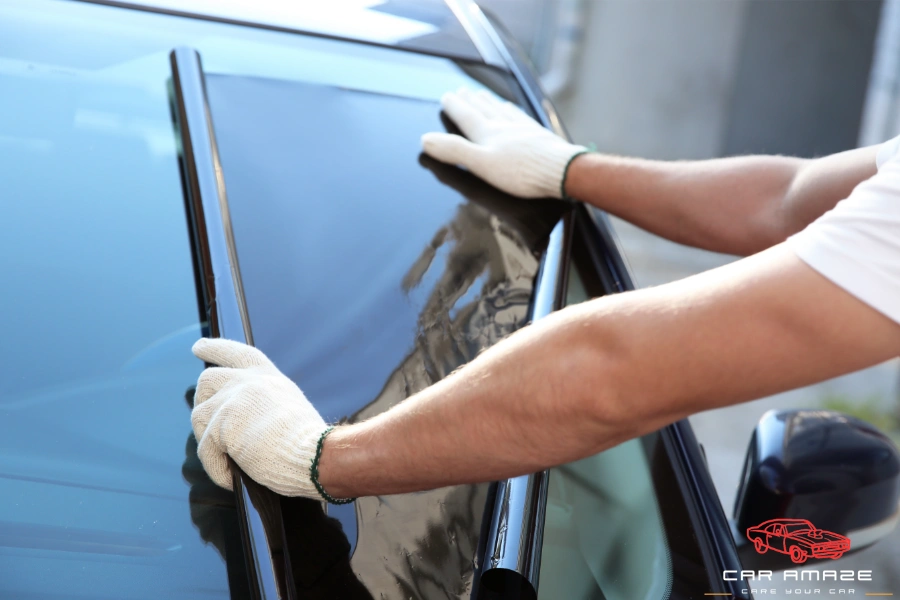
Have you ever noticed cars with darkened windows and thought about why and how people do this? People use tint shades on their car windows for different positive reasons. Car window tint shades offer many benefits other than just giving a good look. In this blog, we will talk about the benefits of different shades of tint for car windows. Reading this blog completely will help you decide which type of tint shade is right for you.
Quick Answer: Types of Car Window Tint Shades 📄
There are six main types of car window tint shades—ceramic, carbon, metalized, dyed, hybrid, and crystalline. Ceramic and carbon tints block heat and UV rays effectively, metalized tints reduce glare but may affect signals, dyed tints are affordable but fade faster, hybrid tints balance performance and cost, and crystalline films block heat without darkening windows. The best tint for you depends on your budget, privacy needs, climate, and local tint laws.
Table of contents
- What are car window tint shades?
- Types of car window tint shades
- Which window tint is right for you?
- Benefits of window tint shades
- Conclusion
- FAQs
What are car window tint shades?
The tint shades are thin films that we apply to car windows for a dark shade. These films are made up of different materials and have different levels of darkness. The main purpose of window tints is to reduce the amount of sunlight and harmful UV rays that enter the car. These films also provide privacy to the passengers sitting inside the car.
Types of car window tint shades
There are 6 main types of car window tint shades that are described below:
Ceramic tint
This tint is made up of ceramic particles that stop the heat from entering the car. The ceramic tints do not conduct heat and are known for their excellent performance. This type of tint can block a lot of the sun’s heat and harmful UV rays. Moreover, it also protects the electronic devices in cars from getting damaged due to heat. The ceramic tint is also very durable and does not get weak or damaged over time. Both ceramic tint and regular tint are perfect for cars, but ceramic tint offers more protection from heat and UV rays.
Carbon tint
These car window tint shades contain carbon particles that help in blocking the sun’s rays. The carbon tint provides a dark and matte finish, which looks very attractive. These tints also last very long and effectively block heat and UV rays. Another main advantage of carbon film is that it does not interfere with electronic signals.
Metalized window tint
Metallic window tints contain metallic particles that help block heat and UV rays. For this reason, metallic window tints are highly effective in reducing heat and glare. Although metalized window tint is very beneficial, it also has a disadvantage. This type of film can interfere with the electronic devices in cars due to the presence of metal content in the film.
Dyed window tint
If you are on a low budget, dyed window tints are the best option for you. To make dyed window tint, the manufacturer places a dye between the adhesive layer and a protective top coating. These tints can block the sunlight and UV rays, but they are not as effective as other types. They are affordable but have very low quality and also fade over time, especially under strong sunlight.
Hybrid window tint
The hybrid window tint is a combination of dyed and metalized films. This film is very beneficial as it combines the benefits of both types of window film. The most useful advantage is that it has low metalized properties and does not interfere with electronic devices. Moreover, this type of tint is also very effective in blocking sun heat and UV rays and reducing glare.
Crystalline window film
The crystalline window films are very unique as they block the heat and UV rays without darkening the windows. They are perfect for those who want the benefits of window tints without changing the appearance of their car too much. This type of window car is also suitable for cars in those regions where black car windows are not allowed. The crystalline window is very clear but still has a strong capacity to protect the car from heat and UV rays.
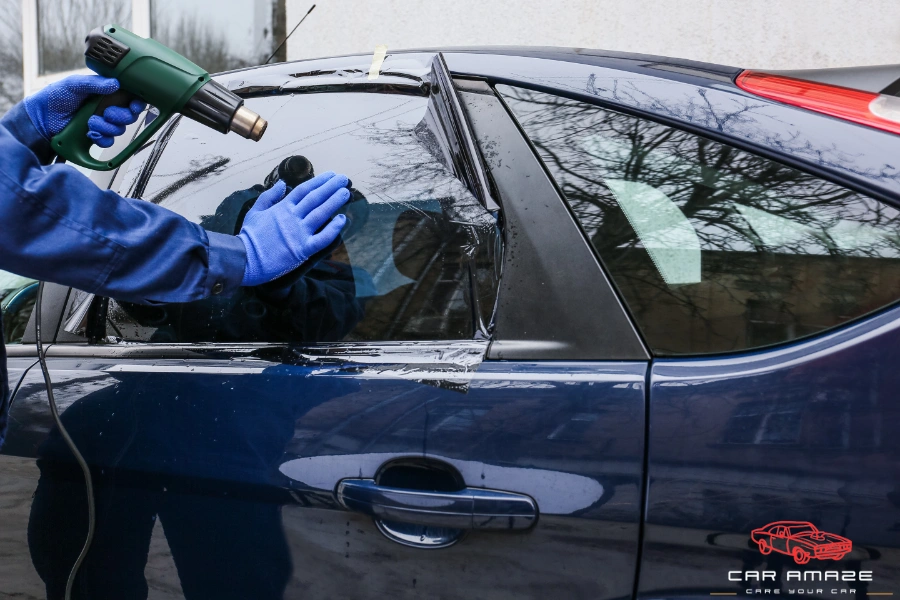
Which window tint is right for you?
Besides knowing about the different shades of tint for car windows, you must have an idea of which one is right for you. Whether you are wrapping the car or tinting the windows, make sure you choose the right amount of material. These factors help you compare the different car window tint shades and choose the suitable option.
Considering light transmission
Before choosing the window tint, figure out how much light you prefer to enter inside the car. Some people prefer very dark tints for more privacy, while others may want lighter tints to maintain better visibility. For instance, if you want no disruption in the light inside a car, the crystalline window film is highly suitable for you.
Here is a table that shows different tint percentages, their light transmission capabilities, and their typical uses:
| Tint Shade Level | Light Transmission (%) | Typical Uses |
| Clear | 100% | Maximum visibility and no tint effect |
| Light | 80% | Minimal tint and reduces glare slightly |
| Mild | 70% | Moderate glare reduction and some privacy |
| Medium | 50% | Balanced tint and good for UV protection |
| Dark | 35% | Increased privacy and significant heat reduction |
| Very Dark | 20% | High privacy and excellent heat reduction |
| Limo Tint | 5% or less | Maximum privacy |
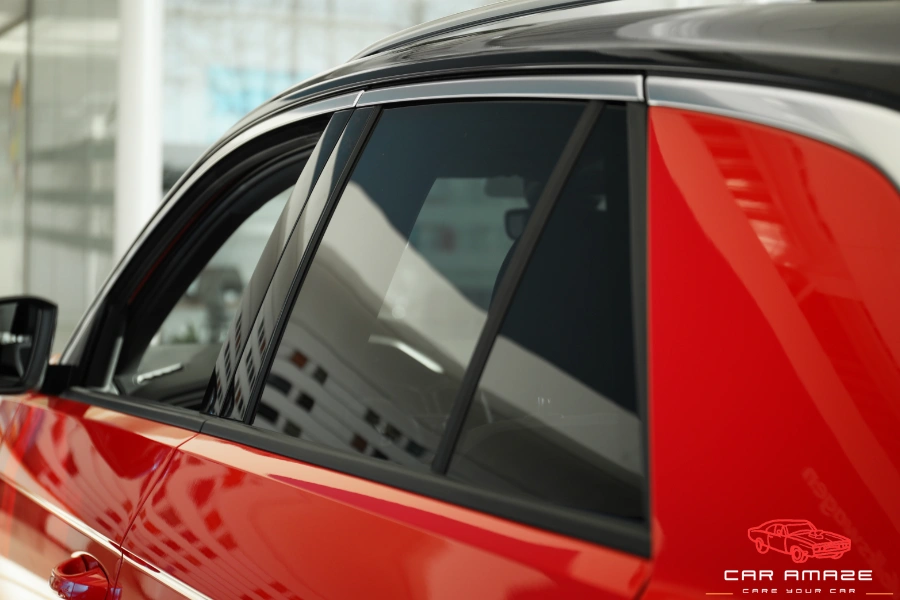
Evaluating heat rejection abilities
Different tints have different abilities to stop heat and UV rays from the sun. For example, if you live in a hot climate, you might want to choose a tint with high block efficiency for heat and UV rays from the sun. Ceramic and metalized tints are best for hot weather because they can easily block the strong UV rays and heat waves. Additionally, window tinting protects the interior from harmful rays.
Legal rules about tint levels
It is essential for everyone to follow the legal car tint rules about the limitations of tint levels. Different places have different rules about the level of car window tint shades. You must select the tint level according to the rules in your area to avoid paying heavy fines. If tinting or applying dark film to the car window is not allowed in your area, you can go with crystalline window film.
Factoring in UV protection
Another factor that helps in deciding the tint type is the level of UV protection. If you spend a lot of time driving, you must protect yourself from harmful UV rays. Ceramic, carbon, and crystalline tints are excellent choices for UV protection. If they strongly advise you to protect yourself from UV rays, you can request approval for tinted car windows.
Weighing Aesthetics and Privacy
The last basic factors that help in choosing the window tint type are appearance and privacy. Consider how you want your car to look and how much privacy you need when selecting a tint.
Focusing on all these factors will help you choose the highly suitable car window tint shade.
Benefits of window tint shades
There are several benefits of using window tint shades on the car. Here is a list of the most highlighted benefits:
- Window tints increase the privacy of your car and make it harder for outsiders to get inside the car.
- It can efficiently block harmful UV rays, which can cause sunburn and increase the risk of skin damage.
- The tint reduces heat generation inside the car and keeps it cool under direct sunlight.
- As you know, there are multiple car tint colors available in the market. This gives you the flexibility to choose the best color combination for car tint and car body paint. This way you can give your car a whole new look that stands out.
- Glare from the sun or bright headlights can be annoying and even dangerous while driving. Window tints help reduce glare and make it easier to drive the car.
- The window tint shade also protects the interior of the car from heat. Without tint shades, the car interior, such as the dashboard and seats, will fade out and crack.
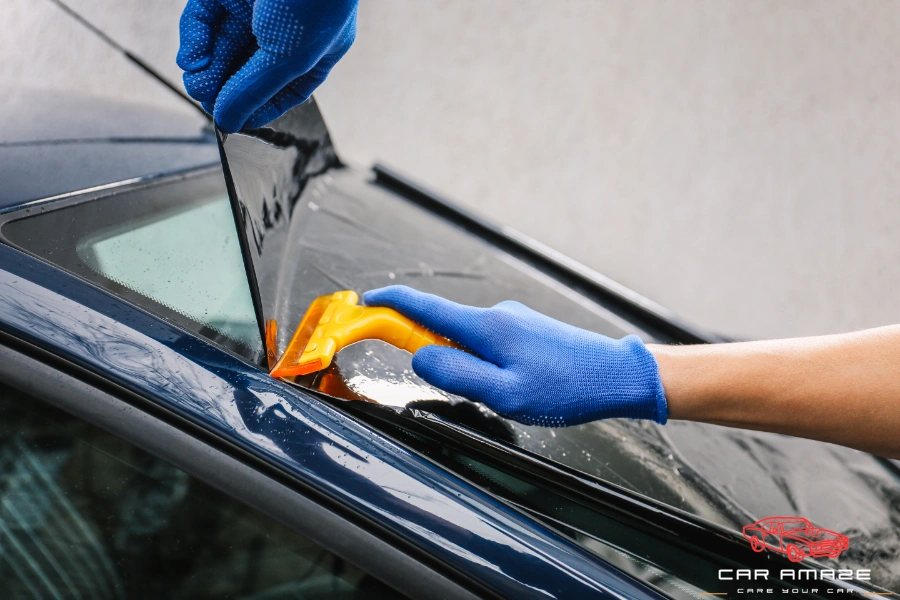
Conclusion
There are several car window tint shades, but choosing the perfect type can enhance your driving experience. Focus on the factors highlighted in this guide when choosing the tint type. Whether you want to enhance looks, comfort, or aesthetics, every need has a specific window tint.
FAQs
What is car window tinting?
Car window tinting is the process of applying a thin film to the car window to reduce heat, glare, and UV rays. It is very beneficial for protecting the car’s interior from heat and providing privacy inside the car.
How long does it take to tint car windows?
The professional might take around 2 to 4 hours to tint all the windows of cars. However, the time may vary based on the number of windows and the type of window tint.
Is the window tinting legal?
Window tinting is generally illegal in many regions, but you can confirm the details with the police or other departments in your region.
Can window tint protect the interior of the car?
Absolutely yes. The vehicle window tint shades protect the interior of cars from heat and strong UV rays. They protect everything inside the car, especially electronics, seats, and the dashboard.
How do I care for tinted windows?
Clean with a mild, ammonia-free cleaner and a soft cloth to avoid damaging the tint film. You must properly clean the window tints because they are fragile and can be damaged by rough handling.

